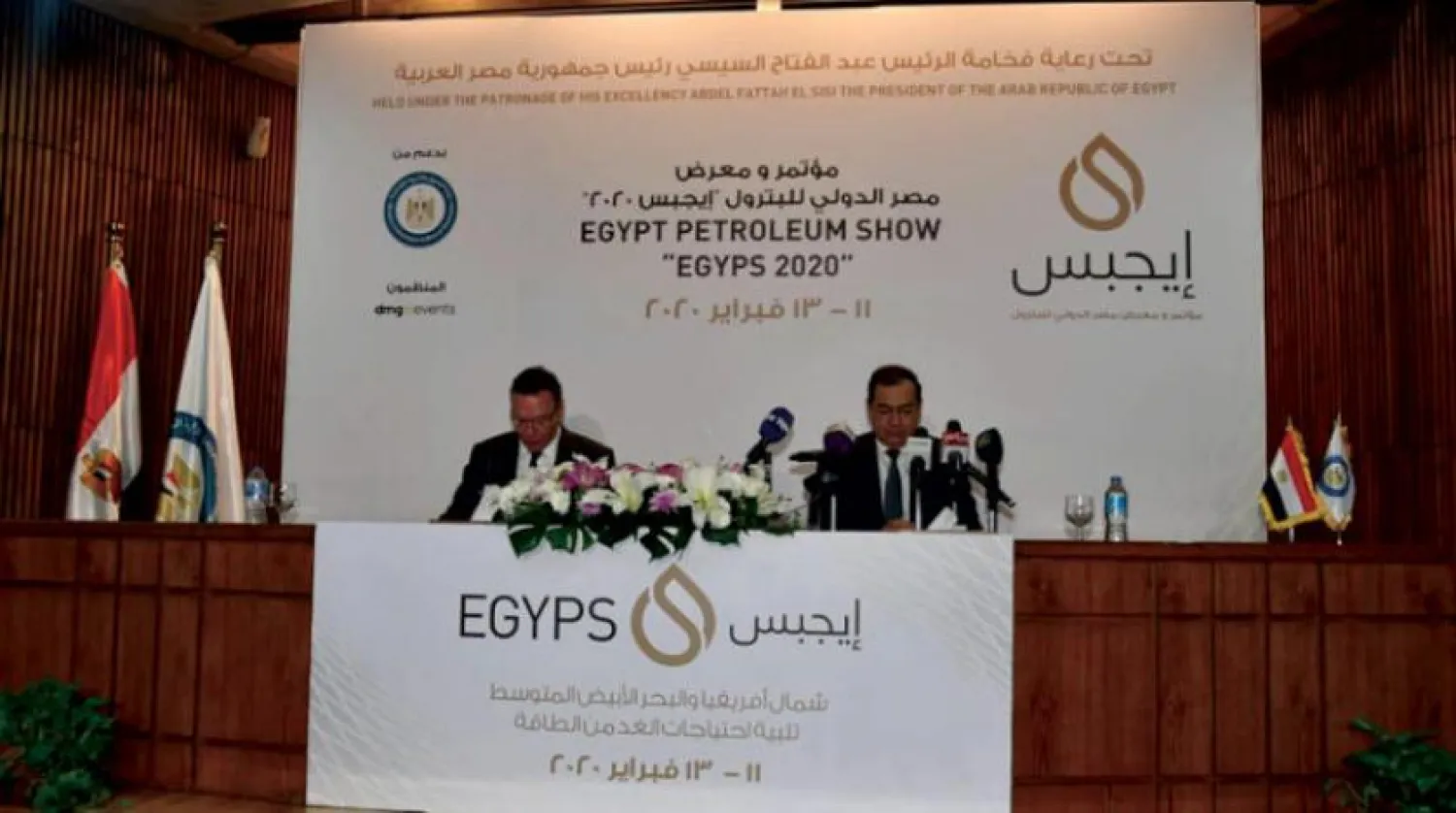Egypt’s Minister of Petroleum Tarek el-Molla said that Petroleum Show (EGYPS 2020) will discuss several topics, including financing amid the current global economic conditions, given that the petroleum sector is one of the largest industries that acquire investments and financing.
The Minister was speaking at a press conference to announce the fourth edition of EGYPS 2020 in February, under the auspices of President Abdul Fattah El-Sisi.
The event will be held on February 11 under the slogan “North Africa and the Mediterranean: Delivering the Energy Needs of Tomorrow.”
Senior officials and heads of major international oil companies will participate in the conference and discuss various issues relating to Egypt's efforts into becoming a regional center for energy and the development of key activities such as research, exploration, production, refining, and marketing, as well as women’s role in the sector.
Meanwhile, the minister announced that the "Egyptian Refining Company” project started its operation after completing the trial phase.
He added that the oil sector continues its research and exploration activities in production areas such as the Gulf of Suez and the Western Desert to find new discoveries and enhance Egypt's oil production.
For his part, President of DMG Events Christopher Hudson explained that the fourth edition will host over 450 international exhibitors showcasing thousands of products and services to over 30,000 trade professionals from 14 countries including Germany and India, which are participating for the first time.
The events will include 36 specialized technical sessions, 10 strategic sessions, seven sessions devoted to the role of women in the energy field, seven sessions in the areas of investment and financing, six sessions for occupational health and safety and environmental protection, in addition to four strategic round tables for company heads.
Earlier on Tuesday, the Egyptian Ministry of Petroleum announced the signing of two new agreements to explore for oil and natural gas in the Mediterranean with ExxonMobil oil company, of a minimum investment of $332 million.
In a press release, of which Asharq Al-Awsat obtained a copy, Molla said that ExxonMobil’s return to Egypt for oil and gas exploration represents an added value to the successes achieved by the oil sector.
The Minister noted that since June 2014, the petroleum sector has managed to sign 82 new agreements for oil and gas exploration, with a total investment of about $16 billion.
The Vice President of ExxonMobil Exploration Company for Europe, Russia, Caspian, Middle East, North Africa, Don Bagley, said in a separate statement that the new acquisition boosts the company’s activities in exploration east of the Mediterranean, adding that the company is looking forward to cooperating with the Egyptian government.
The acquisition includes 5,000 kilometers squared in North Marakia Offshore block, which is located approximately five miles offshore Egypt’s northern coast in the Herodotus basin. The remaining area is in the North East El-Amriya Offshore block in the Nile Delta.









